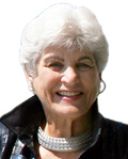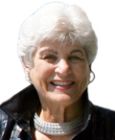
Wisdom
Don’t Sweat the Small Things: Another Name for Wisdom
Questions about life should be driven by wisdom not technology.
Posted April 14, 2011
There are certain concepts in our culture, which you know when you see it but find it difficult to define. One of those words is wisdom. I have begun asking everyone to identify wise people, and then to define wisdom. People have no trouble identifying wise people- Nelson Mandela, Albert Einstein, Mother Theresa, Eleanor Roosevelt, Ophrah. These are really modern day heroes and heroines who happen to exhibit characteristics of wisdom. When asked to go further, people struggle and stumble.
We are becoming technologically more sophisticated, we might be tempted to think we are smarter, and wiser. But answering hard questions about work, love, and play need to be driven by wisdom not technology.
I was sitting next to a man at dinner who told me that he had had a flat tire on his way to an important dinner. He started catastrophizing, saying the evening was ruined. His wife wisely said, "There is only one problem-to change the tire." He suddenly realized that he was blowing something out of proportion rather than focusing on what had happened and shifting his focus to solve the problem. His wife exhibited wisdom.
In their book, Successful Aging, John Rowe, M.D. and Robert Kahn Professor of Psychology and Public Health define wisdom as the "ability to exercise good judgment about important but uncertain matters in life. This ability involves both factual knowledge, which is often experience-based, and the use of that knowledge in reasoning and problem solving (1998, p. 140)." In one study, people of all ages were presented with problems. For example, a fourteen year old was presented with the problem of what to do if she were to become pregnant. A sixty-year-old widow, about to start her own business, was confronted with a major problem-her daughter-in-law had just died leaving two small children. What should she do? The answer to these questions were rated according to the five criteria of wisdom: factual knowledge, ability to access other needed information, recognition of consequences, sensitivity to the cultural context, and recognition that no course of action is perfect (p.141).
In an article that reviews where we are in the study and application of wisdom, Paul Baltes and Ursula Staudinger (January, 2000) describe the "Berlin Wisdom Paradigm" which defines wisdom "as an expertise in the conduct and meaning of life...To this end, we introduced the concept of the fundamental pragmatics of life...[the] knowledge and judgment about the essence of the human condition and the ways and means of planning, managing, and understanding a good life (p. 124).
That definition of wisdom describes what successful aging is all about. It is knowing when and how to let go of what is finished, to reinvest in life, make compromises, and engage in new exciting activities. In discussing "life" with an eighty-three year-old woman, who works full-time as a volunteer philanthropist, she said it was all about attitude. It was wisdom which is based on experience, wisdom to not "sweat the small stuff."
Nancy K. Schlossberg
Author, Revitalizing Retirement: Reshaping Your Identity, Relationships and Purpose
Copyright 2011

